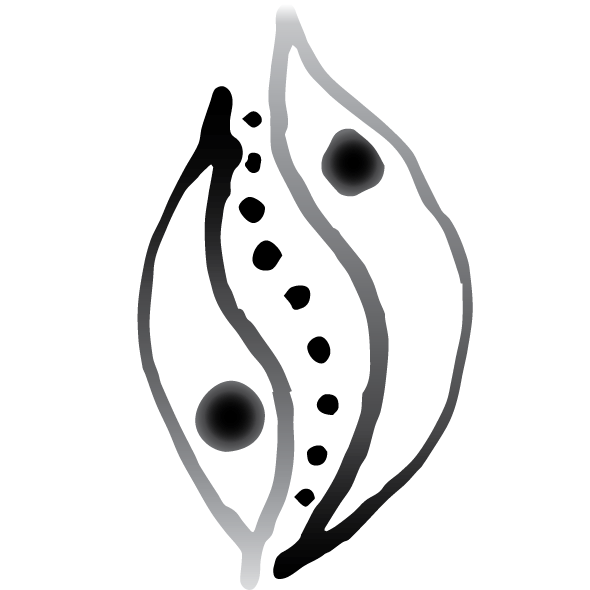Frequently Asked Questions
- How long does it take to treat homeopathy?
It is impossible to answer this question unambiguously. Everything is very individual. Many factors play a role in chronic cases, such as age, health group the person is in, duration of the disease, and its severity. It also depends on the medication the patient has taken. In acute cases, it is possible to help very quickly. We are talking about hours or even minutes.
- What the term "classical homeopathy" means
A homeopath who uses monocomponent preparations, i.e., one active substance (e.g., staphysagria), is called a doctor who uses the method of classical homeopathy; he prescribes only one preparation per reception, not several different ones, so-called complexions. I consider this method most effective when the organism receives one targeted stimulus and "knows" where to direct its energies for self-healing. S. Hahnemann proposed this method, and in the history of homeopathy, it has more than justified itself, giving healing to millions.
- Can homeopathy be taken together with traditional medicines?
Generally accepted conventional drugs (antibiotics, hormones, anti-aggregates, antipyretics, analgesics, etc.) suppress the symptoms. Homeopathy, on the other hand, acts oppositely. Ideally, it is best not to use treatments that work in different directions.
However, suppose the patient has been taking various medicines for a long time before he came to the homeopathic doctor, which cannot be stopped at once. In that case, it is possible to prescribe homeopathic treatment, gradually reducing the dose of the usual remedies. In the course of treatment, when the doctor sees improvement, he may gradually minimize and eventually cancel the drugs, even though the patient has been taking them for years. If the homeopathic physician believes that the remedies can be safely withdrawn without harming the body, he will do just that.
However, suppose the patient has been taking various medicines for a long time before he came to the homeopathic doctor, which cannot be stopped at once. In that case, it is possible to prescribe homeopathic treatment, gradually reducing the dose of the usual remedies. In the course of treatment, when the doctor sees improvement, he may gradually minimize and eventually cancel the drugs, even though the patient has been taking them for years. If the homeopathic physician believes that the remedies can be safely withdrawn without harming the body, he will do just that.
- I have heard that you should not drink coffee while taking homeopathy. Is this true?
Yes, it is true. The caffeine in coffee is an antidote to the homeopathic remedy. If the patient takes homeopathy, coffee will have to be avoided. But the good news is that there is a wide range of other, no less fragrant and delicious drinks. There is always a choice))).
- What is a homeopathic aggravation?
This is a non-trivial question. In this case, we are not discussing an exacerbation in the commonly accepted concept. Here we are talking about an increase in the symptoms of the disease, which occurs as a natural and adequate reaction to the correctly chosen remedy when the body itself, which before the treatment was not strong enough to overcome the existing problem, but under the action of homeopathy, it has now received a positive incentive to overcome it, strengthening these same symptoms for a while - get rid of them permanently through their short-term enhancement. I must say that homeopathic aggravation does not always occur, so in acute conditions, this aggravation is almost invisible because usually, the symptoms are pronounced. The patient simply overlooks their slight aggravation. In chronic cases, when the body's reactivity is reduced, achieving a brief worsening of symptoms is not immediately possible. In any case, homeopathic exacerbation will not manifest itself more than the disease itself.
.
.
- They say homeopathy has a placebo effect, i.e., its effect is essentially based on self-interference?
This opinion does exist)))). Homeopathy is medicine based primarily on experience, on real cases of healing, including severe and very severe diseases such as rheumatoid arthritis, bronchial asthma, glomerulonephritis, Crohn's disease, suicidal depression, or panic attacks. If a moderate spasmodic headache with no good reason can probably be "cured" by self-hypnosis or a soothing conversation with a doctor or by taking a placebo, in essence - a dummy, but serious cluster pains cannot be relieved by such measures. And homeopathy works on a par with non-narcotic analgesics and not only relieves pain but also leads to their gradual disappearance, affecting the root cause of the disease. In addition, homeopathy works perfectly well for infants and animals, for which persuasion and self-infusion are all the same. The placebo effect does not work in the case of profuse diarrhea, vomiting, or real pain syndrome in a patient of any age.
.
.
- Who invented homeopathy?
Homeopathy originated in the genius of the great German physician and scientist Samuel Hahnemann (1755-1843), who discovered and formulated the principles by which this medical science works. You can read more about the history of homeopathy here:
https://www.nkj.ru/archive/articles/6859/
Numerous followers of Hahnemann, such as German surgeon Constantin Goring, American physician James Tyler Kent, American physician Professor Ernest Albert Farrington, French physician Gilbert Charette, and American physician Eugene Beauharnais Nesch and many others, have contributed significantly to the development of this teaching. The follower and continuator of Samuel Hahnemann's work is the famous Greek homeopath, the Nobel Prize alternative winner, and founder of the Academy of Classical Homeopathy, Professor George Vithoulkas.
.
https://www.nkj.ru/archive/articles/6859/
Numerous followers of Hahnemann, such as German surgeon Constantin Goring, American physician James Tyler Kent, American physician Professor Ernest Albert Farrington, French physician Gilbert Charette, and American physician Eugene Beauharnais Nesch and many others, have contributed significantly to the development of this teaching. The follower and continuator of Samuel Hahnemann's work is the famous Greek homeopath, the Nobel Prize alternative winner, and founder of the Academy of Classical Homeopathy, Professor George Vithoulkas.
.


